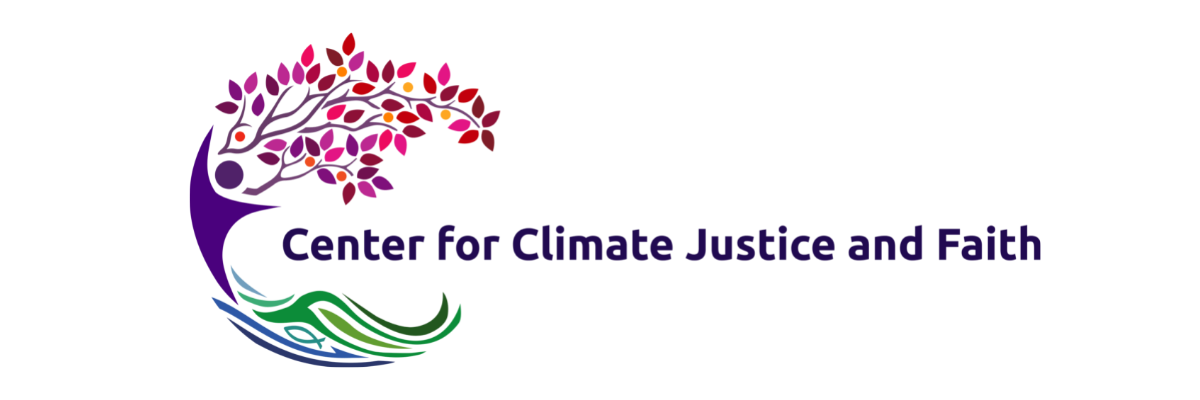Student Engagement in Climate Justice
Student Colloquium on Climate Justice and Faith

After attending the Bioneers Conference in 2024, students in the Concentration in Climate Justice and Faith at PLTS were inspired to host a similar event where seminarians could share ideas and inspiration with one another. Last fall, the PLTS Green Justice Seminary Initiative and the Laudato Si’ Action Committee at the Jesuit School of Theology began working together to organize the Inaugural Student Colloquium on Climate Justice and Faith. The goal of this colloquium was to provide opportunities for presenters and attendees to gain inspiration, ideas, and knowledge for incorporating climate justice into their work and lives. Students Graduate Theological Union affiliated schools and centers were invited to submit proposals for a 15-minute presentation on a topic related to climate justice and faith.
On May 2, 2025, this inaugural colloquium was hosted at PLTS and online. Seven students from three GTU-affiliated schools presented papers and projects that focused on the intersections of climate justice, faith, creation care, and environmental justice. The presentations were powerful, inspiring, and incredibly diverse.
Fabio Colorado, a first-year student in Doctorate of Sacred Theology program at JST, started the colloquium with his presentation discussing how the Church in El Salvador responded to the threat of mining. A native Salvadoran, Fabio shared how El Salvador became the first country in the world to ban mining when it passed a mining moratorium in 2017 with support from the leadership of the Catholic Church and how the Catholic Church has continued to use it’s influence to keep the moratorium in place.
Trevor Boe, a third-year in the MDiv program at PLTS gave a powerful presentation called, “An Ecotheology of the Cross in the time of the Climate Crisis”. Trevor asked the question, “How might our theology best reflect the needs of those who are alive today?” Pulling from ecotheological writers such as Sallie McFague, Ivone Gebara, and Cynthia Moe-Lobeda he explored how a prominent theology of the cross must be in alignment with the most pressing issue of his generation: the climate crisis.
For our third – and only group – presentation, Regina Banks, third-year MDiv student at PLTS; Katie Insalaco, third-year MDiv student at PLTS; and Julia Rankin, first-year MA student at PLTS, shared their quest to track the ecological footprint of the eucharist. Their curiosity led them to a family-owned vineyard outside of Sacramento, CA where they witnessed communion wine made using regenerative viticulture and the labor of fellow congregants. They also uncovered how the most popular communion “bread” in the U.S. is manufactured by two large companies that consider the ingredients of the eucharist to be “proprietary information”.
After a short break, we resumed with a presentation from Mark Blanke, a second-year MDiv student at JST on Healing Wonder. Mark posited that a sense of wonder is crucial for creating a more just world, “Wonder opens us. Wonder restores us into a disposition that is ready to receive others, to not judge, and to love… We are built for wondering in God and God’s creation. If we create time in our schedules to wonder, we will be better co-creators with our Creator.”
Mami Brunah Aro Sandaniaina, second-year MDiv student at PLTS, was our fifth presenter of the day and shared her inspiring Sacred Action Project which she completed as part of the Certificate in Climate Justice and Faith at PLTS. Mami Brunah is from Madagascar and for her projectshe interviewed a dozen young Malagasy women who migrated from Southern Madagascar where Mami Brunah was raised to cities in the north where they work as low-paid domestic workers. During these interviews Mami Brunah uncovered that many of these women were driven from their agricultural communities due to droughts that made it impossible to survive off of the land. Mami Brunah is now working with her colleagues in Madagascar to create a garden and farming program so these women can support themselves and have access to healthy food.
Our final two presentations were via Zoom. Charissa Jaeger-Sanders, a PhD candidate at the Graduate School of Theology, presented her dissertation, “Down in the Dirt and Dwelling in the Darkness: A Wesleyan Theology in Interreligious & Interdisciplinary Engagement.” Charissa explores the “profound suffering and mass extinction witnessed in evolutionary biology, in dialogical engagement with Hindu Śākta Thealogy, and rooted in a constructive Wesleyan Christian Theology, this dissertation will seek to articulate the goodness and thoroughgoing Immanence of the Divine Immanuel, Who is first and foremost, Love, abiding with all of creation, extending (but not limited) to the micro level.”
Finally, Shirantha Perera, a recipient in the Certificate in Climate Justice and Faith and NGO leader in Australia, presented on the intersection of faith, climate justice, and transformational development through the perspective of Farmer Managed Natural Regeneration (FMNR). Shirantha asked the question, “Does FMNR as a transformational development project model restore hope among the most vulnerable communities in Timor-Leste? If so, what is the nature of this hope that those communities experience?”
Congratulations to all of these presenters! Watch a recording of these presentations here and sign-up for the Center for Climate Justice and Faith’s Spring Wellspring Newsletter to register for our next Student Colloquium on Climate Justice and Faith next year.

